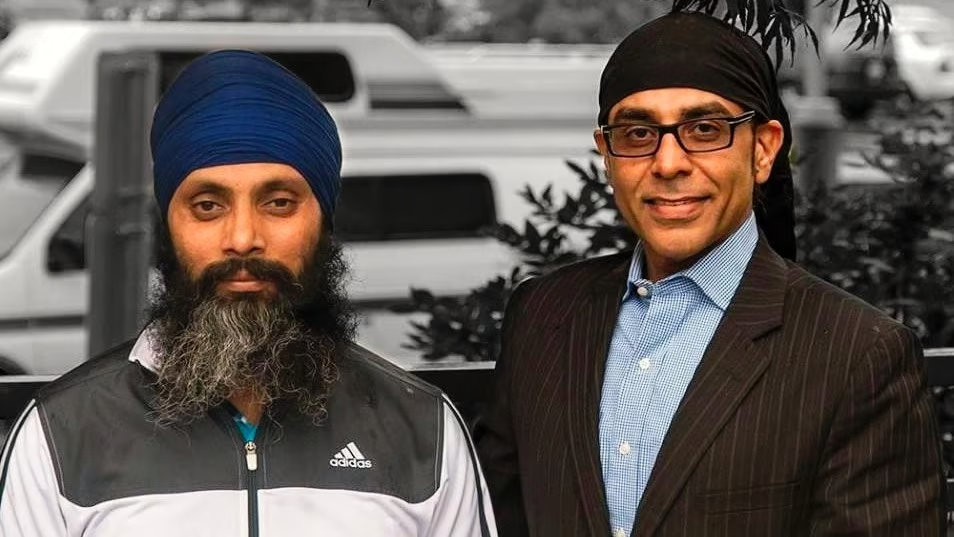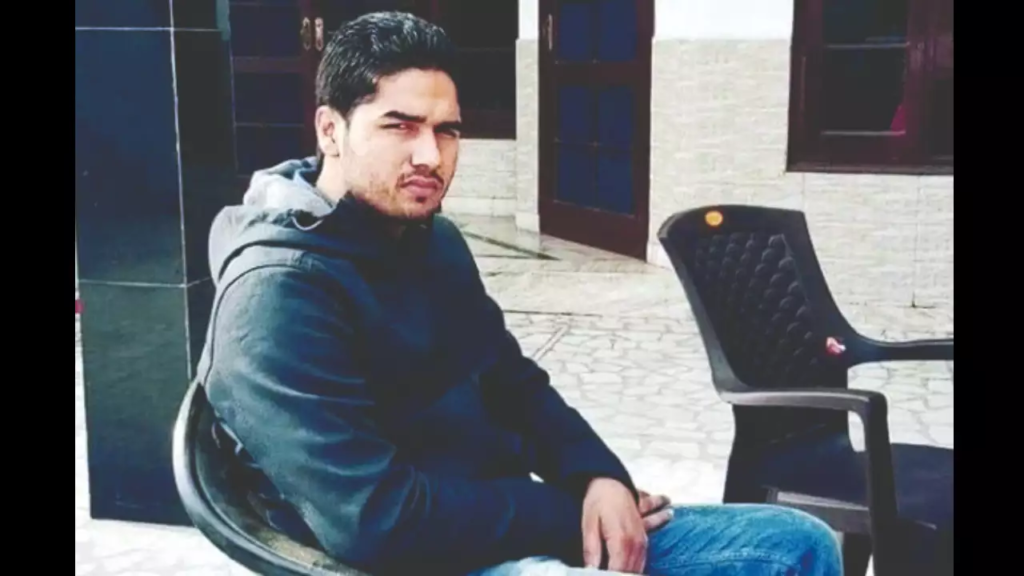The recent arrest of Arshdeep Singh Gill, also known as Arsh Dalla, marks a significant development in the ongoing tensions between India and Canada over the Khalistan separatist movement. Dalla, designated as a terrorist by India, has been involved in multiple heinous activities, from targeted killings to terror financing.
His apprehension in Canada adds another layer to the complex issues surrounding Khalistani terrorism, particularly in the context of the killing of Hardeep Singh Nijjar, which has strained relations between New Delhi and Ottawa.
Who Is Arsh Dalla? The Rise of a Khalistani Extremist
Arshdeep Singh Gill, known by his alias Arsh Dalla, hails from Ludhiana, Punjab, and has been recognized by the Indian government as a dangerous figure linked to the banned Khalistan Tiger Force (KTF).
The Ministry of Home Affairs (MHA) declared him a terrorist in 2023, linking him to severe crimes including murder, extortion, and attempts to disrupt communal harmony in Punjab.
Known for his close association with Hardeep Singh Nijjar, another prominent Khalistani activist who was killed in Canada, Dalla represents a key figure within the Khalistani movement that seeks to establish a separate Sikh homeland in India’s Punjab region.
Dalla’s involvement in cross-border activities has reportedly aided various illegal operations, such as terror financing, drug and weapon smuggling, and organizing hits on Indian soil from Canada.
Read : Canada Will Host Next G7 Summit in 2025: Will India Be Invited?
As a fugitive operating abroad, his designation as a terrorist by Indian authorities highlights India’s concern over the continued support and funding that such extremists allegedly receive from the diaspora.
Read : Canada on High Alert for Migrants Who May Flee the U.S. After Trump’s Win
Dalla’s arrest in Canada, which reportedly followed a shootout, raises questions about the implications for similar figures in the movement and the impact this could have on international counterterrorism efforts.
Arrest in Canada and International Implications
On October 29, the Halton Regional Police Service (HRPS) announced the arrest of two men on charges related to firearm discharge. Sources indicated that one of the men was Arsh Dalla, who had entered a hospital with a non-life-threatening gunshot wound after a shootout.
This incident marks a rare moment when a figure of Dalla’s stature, associated with the Khalistan movement, was apprehended outside India, underscoring the shifting dynamics of counterterrorism measures against separatist movements.

The international community, particularly India, has expressed concerns over the presence of Khalistani terrorists in Canada. The country has long been viewed as a hub for Khalistani activists and sympathizers due to its significant Sikh diaspora.
Dalla’s arrest follows the killing of Nijjar, which led Canadian Prime Minister Justin Trudeau to accuse Indian government agents of involvement, straining diplomatic ties between the two nations. India, in response, recalled its envoy Sanjay Verma and expelled six Canadian diplomats.
These events have highlighted the diplomatic challenges both countries face in addressing cross-border extremism and terrorism, with Dalla’s apprehension further complicating matters.
The Impact on India-Canada Relations and Future of Counterterrorism
The arrest of Arsh Dalla has intensified the ongoing diplomatic row between India and Canada. The allegations surrounding Nijjar’s killing and the accusations against Indian agents have escalated tensions, with both countries taking firm stances.
India’s objection to the support and sanctuary allegedly provided by Canada to Khalistani activists has resulted in a series of tit-for-tat expulsions of diplomats.

Furthermore, the recent developments bring into focus the broader issues of terrorism and cross-border extremism, urging countries to re-evaluate policies surrounding extradition, intelligence-sharing, and counterterrorism collaborations.
Canada’s actions in addressing the presence of such extremists on its soil will likely influence the country’s diplomatic relations and international reputation in handling terrorism.
For India, Dalla’s arrest presents an opportunity to reinforce its stance on tackling Khalistani extremism and calling for stricter actions against those funding or supporting terrorism from abroad.
This also underscores the importance of a global collaborative approach to terrorism that transcends political and cultural divides, focusing on mitigating threats and maintaining peace.


Данный портал публикует интересные новостные материалы со всего мира.
Здесь представлены факты и мнения, культуре и разнообразных темах.
Новостная лента обновляется почти без перерывов, что позволяет всегда быть в курсе.
Понятная навигация делает использование комфортным.
https://ulmoda.ru
Любой материал оформлены качественно.
Целью сайта является информативности.
Следите за обновлениями, чтобы быть в курсе самых главных событий.
Наш ресурс размещает актуальные инфосообщения со всего мира.
Здесь представлены новости о политике, науке и других областях.
Контент пополняется ежедневно, что позволяет не пропустить важное.
Удобная структура ускоряет поиск.
https://myfashionacademy.ru
Каждое сообщение предлагаются с фактчеком.
Редакция придерживается честной подачи.
Следите за обновлениями, чтобы быть в курсе самых главных событий.
Freight delivery from China is dependable and efficient.
Our company offers custom solutions for companies of any size.
We handle all transportation processes to make your operations smooth.
shipping of goods from china by air
With direct shipments, we guarantee timely arrival of your orders.
Clients trust our professional team and competitive rates.
Choosing us means certainty in every delivery.